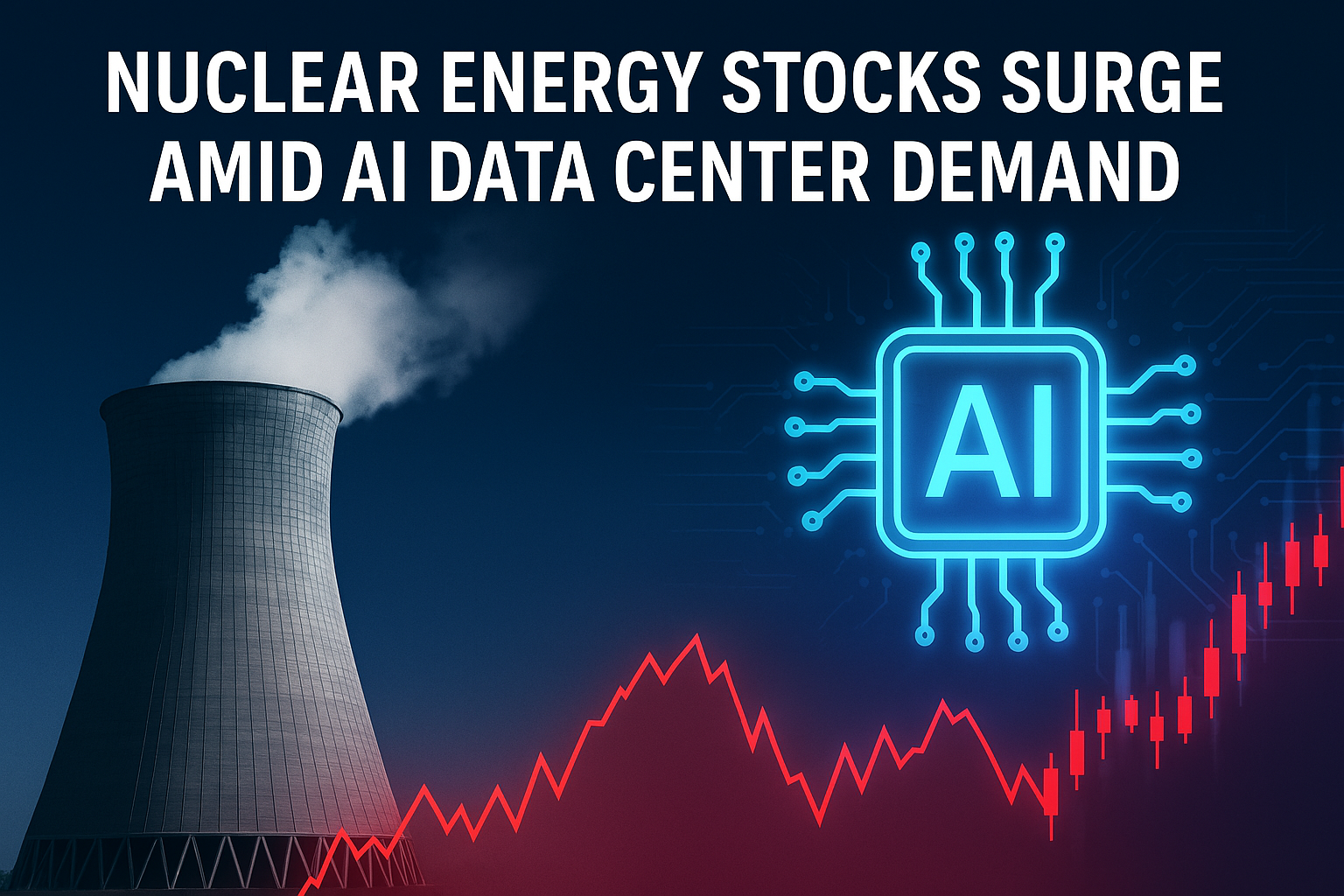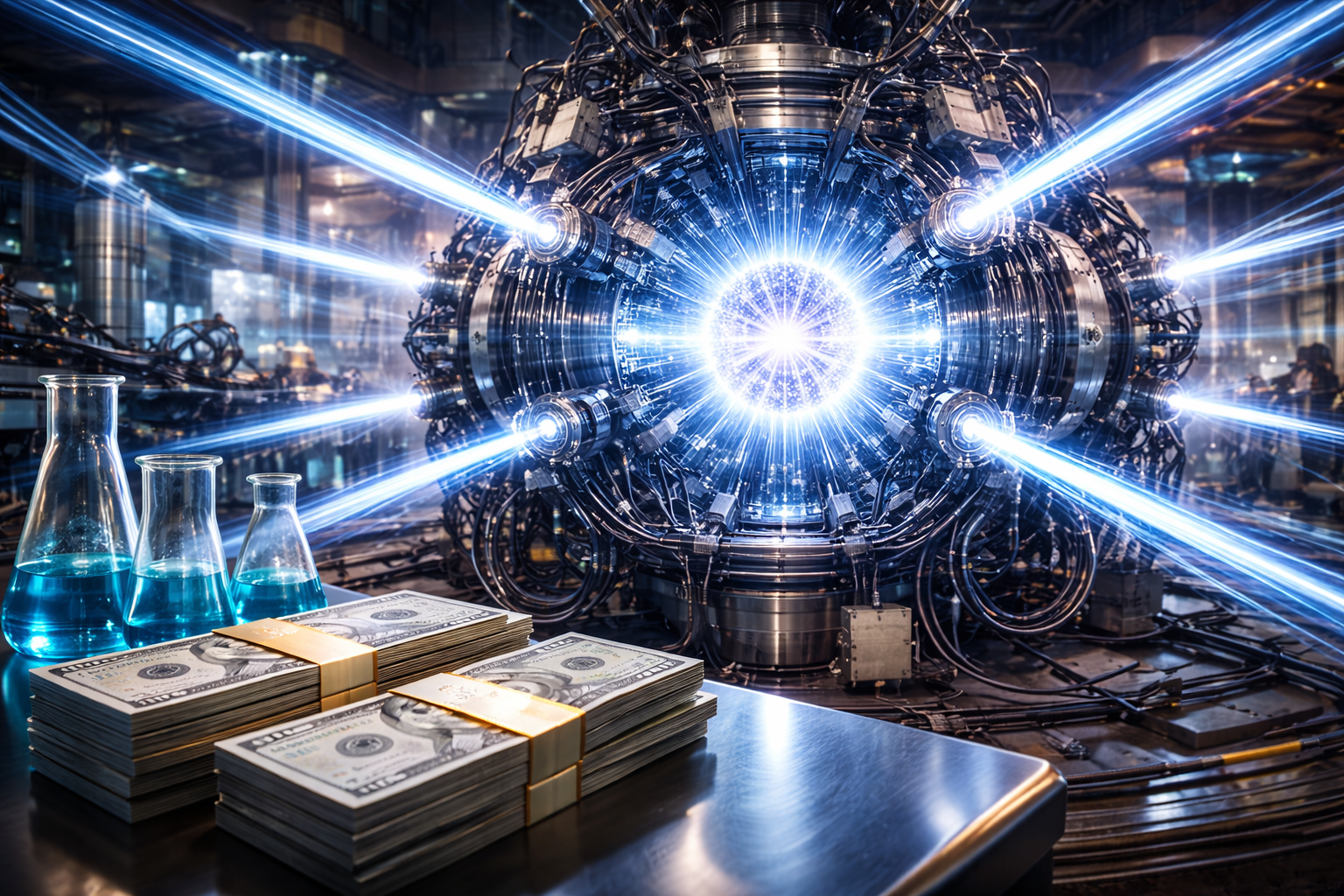As artificial intelligence continues to dominate investment narratives, a less obvious sector is emerging as a critical player: nuclear energy. With data centers consuming unprecedented amounts of electricity to power AI workloads, the need for reliable, large-scale, and carbon-neutral energy has never been greater. That demand is now fueling a notable surge in nuclear energy stocks, giving investors a new reason to re-evaluate this once-controversial industry.
Constellation Energy, the largest nuclear power operator in the U.S., recently secured a $1 billion clean energy deal to support the growing needs of AI-driven cloud and data infrastructure. The stock jumped nearly 7% in response, signaling strong investor enthusiasm for the AI-energy crossover.
AI’s Insatiable Energy Appetite
AI models—particularly large language models like GPT—require vast computing resources to train and operate. A recent report from the International Energy Agency (IEA) projects that global electricity demand from data centers will more than double by 2026, largely driven by AI expansion.
Tech giants including Microsoft, Google, and Amazon are building out hyperscale data centers at record pace. In a recent announcement, Microsoft unveiled plans to invest over $10 billion in new AI infrastructure by 2026. Much of that investment will require consistent, scalable, and sustainable power sources.
“Nuclear energy provides high-capacity, low-carbon baseload power ideal for data centers,” said UBS energy strategist Sarah Halverson. “It’s becoming increasingly clear that renewables alone cannot shoulder AI’s explosive growth.”
Why This Matters for Investors
The shift in sentiment toward nuclear energy marks a broader pivot in the energy transition narrative. Once viewed with caution due to high costs and regulatory hurdles, nuclear is now being reframed as a practical solution to AI-era energy challenges.
Beyond Constellation, other nuclear-focused stocks like BWX Technologies and Cameco Corp. have also seen upward momentum in recent weeks. Nuclear ETFs such as the Global X Uranium ETF (URA) have recorded steady inflows, reflecting rising interest from institutional investors.
Investor attention is also turning to advanced nuclear technologies, such as small modular reactors (SMRs), which offer flexible deployment for localized data centers. Companies like NuScale Power and TerraPower (backed by Bill Gates) are gaining visibility amid increasing public and private investment.
The Energy-AI Nexus: Future Trends to Watch
- Corporate Power Purchase Agreements (PPAs): Expect more tech firms to sign long-term nuclear power deals, as seen in Microsoft’s recent nuclear-linked agreements.
- Public Policy Tailwinds: The U.S. Department of Energy has ramped up funding for advanced reactors, while Europe and Asia are revisiting nuclear as part of decarbonization strategies.
- Uranium Supply Chain Investment: With demand rising, uranium exploration and production companies may present early-stage investment opportunities.
As AI becomes the dominant driver of cloud computing and digital infrastructure, the sectors enabling its growth—especially energy—will remain in sharp investor focus.
Key Investment Insight
Investors looking to gain exposure to the AI infrastructure boom should consider nuclear energy as a complementary play. Companies like Constellation Energy offer a stable utility profile with long-term growth catalysts tied to AI expansion. Meanwhile, ETFs focused on uranium and advanced nuclear could provide broader thematic exposure.
The convergence of AI and nuclear energy represents more than just a technological partnership—it’s a macroeconomic signal that traditional boundaries between sectors are dissolving, creating hybrid investment narratives that can’t be ignored.
Stay Ahead with MoneyNews.Today
For daily investor insights that connect the dots between emerging technology and market opportunity, follow MoneyNews.Today. From AI to energy, we cover the trends shaping tomorrow’s portfolio today.





